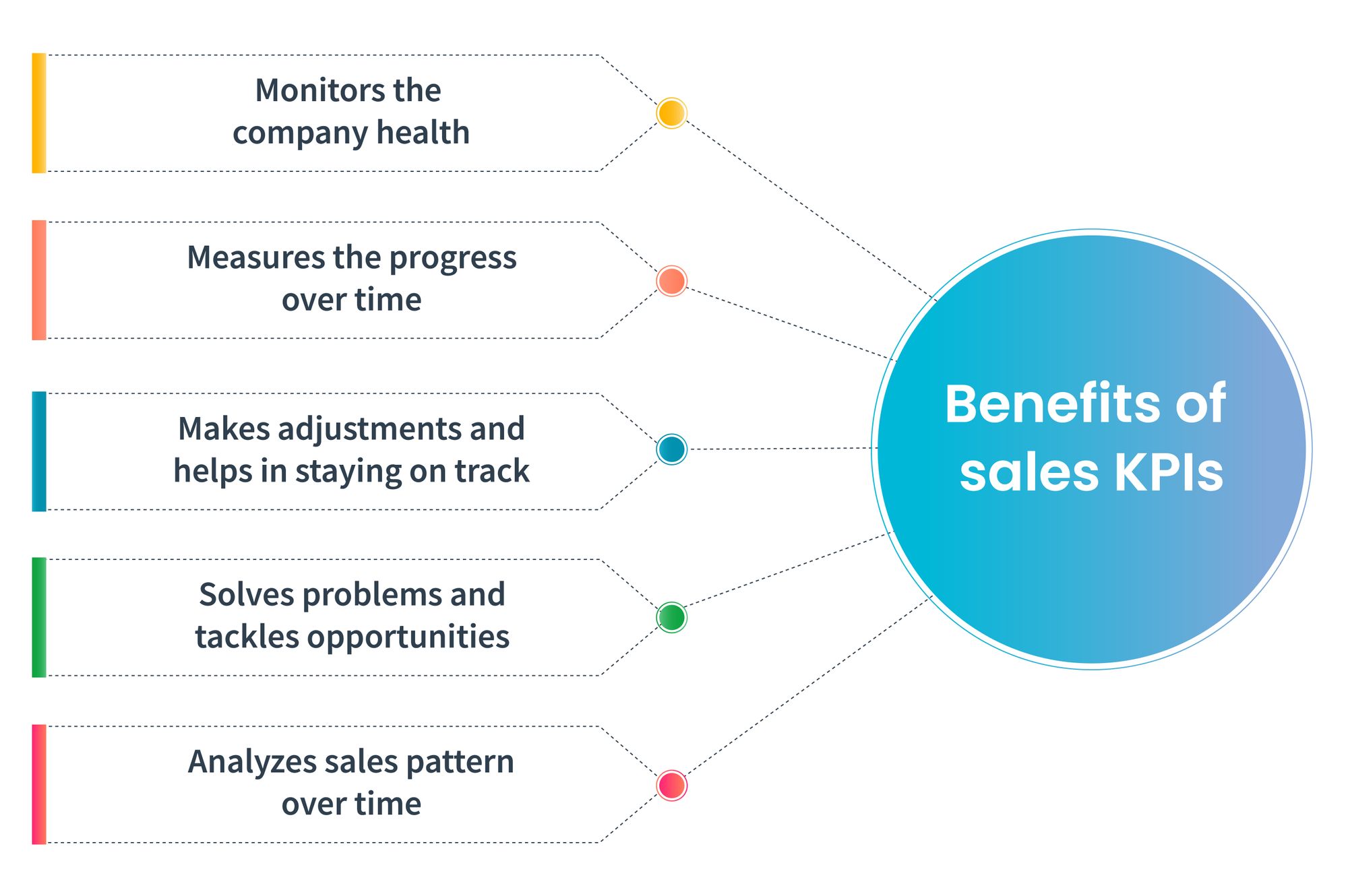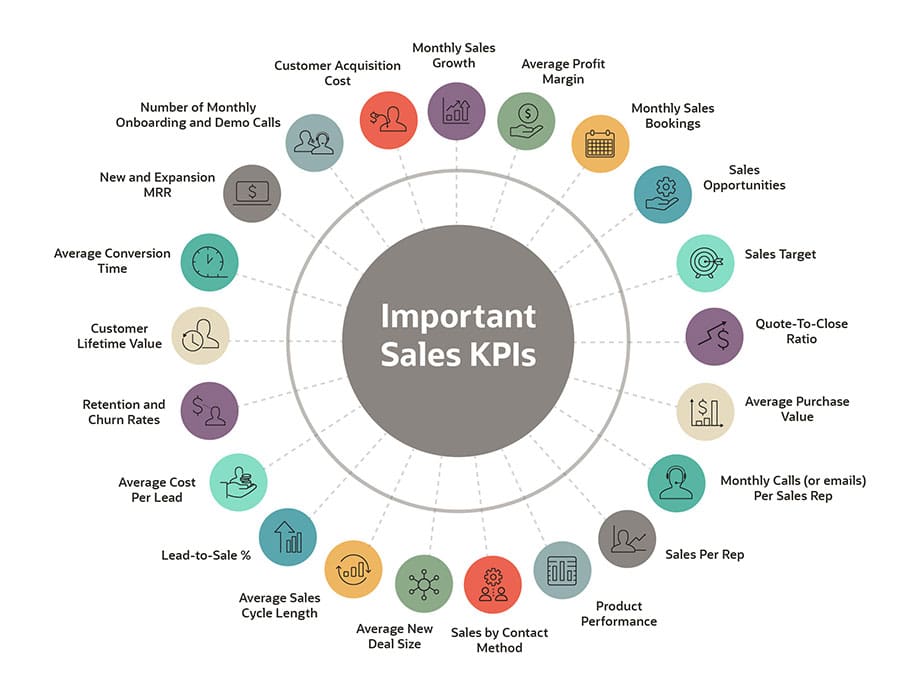Sales KPIs: Track Performance & Drive Growth [Guide]
Are you struggling to understand the real-time performance of your sales team, and how it directly impacts your bottom line? Key Performance Indicators (KPIs) are the essential tools that provide clarity, direction, and the power to drive tangible results in your sales efforts.
In the dynamic world of sales, understanding the nuances of performance is not just beneficial; it's crucial for survival and growth. The ability to accurately gauge progress, identify areas for improvement, and make data-driven decisions separates successful sales teams from those that merely survive.
Key Performance Indicators (KPIs), often referred to as Sales KPIs, are the compass guiding sales teams towards their goals. These aren't just arbitrary numbers; they are strategic measurements designed to track the performance of individuals, departments, or the entire business against predefined targets. They give you the ability to monitor and analyze the sales progress of a company, its employees, and sales teams.
- Ullu Web Series Explore New Releases More Watch Now
- Sajal Aly Ahad Raza Mir Divorce Affairs Fallout Latest News
Consider the reality: your sales team generates an increased revenue of $2,000 per month and this happens in a quarter. A sales metric is, at its core, a factual data point. KPIs go beyond mere data; they transform raw information into actionable insights. KPIs are therefore the backbone of any performance management system. All organizations depend on KPIs to measure progress and success in meeting their objectives. They act as navigational tools, allowing you to assess the effectiveness of various strategies and processes. The correct use of KPIs ensures you can control the work of your sales teams and evaluate the organizations progress in achieving its strategic objectives. These are the factors that are the most important element of tracking a company's progress.
The beauty of KPIs lies in their simplicity and focused nature. By carefully selecting and monitoring the right KPIs, businesses gain the ability to evaluate their success in various activities and areas. The 4 key types of KPIs often refer to metrics like profit margins, revenue, and cost management, along with measures like customer satisfaction, retention, and acquisition. They offer a clear picture of your sales teams performance, helping them measure their effectiveness and efficiency, with the overall goal of improving methodologies and processes to drive sales. For example, if the overarching business goal is 1,200 sales in a year, the KPI might be 100 sales each month.
Every business uses different methods and tools to manage their data and optimize their performance, and one of the most powerful ones is key performance indicators (KPIs). Businesses should therefore choose KPIs that monitor the efficiency of their sales process and select KPIs that directly measure sales performance. The right combination of KPIs will help to assess whether your sales teams and individual team members are meeting their desired performance levels. In sales, KPIs commonly emphasize customer interactions, sales numbers, and employee productivity. These are the activities that show daily individual performance on the ground. Sales KPIs provide targets for teams to shoot for, milestones to gauge progress, and insights that help people across the organization make better decisions.
- Ahad Sajal Divorce Fallout Latest Updates You Need To Know
- Movierulz Latest Movies News Alternatives You Need To Know
Key performance indicators (KPIs) are the metrics used to measure how closely the performance of a sales team tracks to predetermined goals and how this performance impacts the business as a whole. This includes metrics like average leads generated per quarter and deal conversion rate.
| KPI Category | Specific KPIs | Description | Importance |
|---|---|---|---|
| Revenue-Based KPIs | Monthly Recurring Revenue (MRR), Annual Recurring Revenue (ARR), Sales Growth Rate | Track revenue generated, growth, and stability over time. | Directly reflects the financial success and overall performance of the sales team. |
| Sales Process KPIs | Lead Conversion Rate, Opportunity Win Rate, Sales Cycle Length | Measure efficiency of the sales funnel, from leads to closed deals. | Highlights areas where sales processes can be optimized. |
| Sales Activity KPIs | Number of Calls, Emails Sent, Meetings Held, Demos Conducted | Track the volume and effectiveness of sales activities. | Identifies the sales activities that correlate with success. |
| Customer-Focused KPIs | Customer Acquisition Cost (CAC), Customer Lifetime Value (CLTV), Customer Retention Rate | Measure the cost of acquiring customers, their long-term value, and retention. | Indicates the profitability and sustainability of the sales model. |
| Productivity KPIs | Sales per Rep, Sales per Lead, Average Deal Size | Assess the efficiency and output of individual sales reps and the team. | Helps in identifying top performers and areas for training. |
Consider that your sales executive might be evaluated based on their ability to generate a certain number of monthly sales bookings or opportunities, while a sales manager could be evaluated by the total sales volume produced by their team. Historically, KPIs for sales have focused on core targets like new leads in the pipeline, number of closed deals per quarter, and individual quotas.
KPIs and metrics are closely related but serve distinct roles in assessing performance and progress. While all KPIs are metrics, not all metrics are KPIs, meaning they arent tied to strategic outcomes. KPIs are a subset of metrics aligned with organizational goals. Sales KPIs, which stand for key performance indicators, are quantifiable benchmarks you can use to measure your success in achieving a sales goal.
The essence of effective sales management is the ability to measure, analyze, and act. Sales KPIs provide the framework for this process. In some cases, sales KPIs can help sales managers to understand how their team is performing against specific targets, such as sales revenue, lead generation, or conversion rates. The right KPIs allow sales managers to track the performance of their sales team and evaluate the effectiveness of their sales strategies.
Why are sales KPIs so crucial? They serve as a clear indicator of your sales team's performance, providing targets for teams to shoot for, milestones to gauge progress, and insights that help people across the organization make better decisions. KPIs measure a company's success versus a set of targets, objectives, or industry peers. They enable you to control the work of your sales teams and evaluate the organizations progress in achieving its strategic objectives. Every sales manager must measure sales growth over time. However, teams shouldnt ignore smaller, tactical sales KPIs.
These sales KPIs help sales reps stay on track and focus on the right tasks at the right time. They are more than just numbers on a spreadsheet. Good sales KPIs consist of two components: the measurement itself and the performance expectation.
The strategic value of sales KPIs cannot be overstated. Theyre essential because they enable you to control the work of your sales teams and evaluate the organizations progress in achieving its strategic objectives. KPIs are a type of measurement that helps organizations evaluate their success in different activities and areas. Sales KPIs are metrics used to measure the effectiveness of your employees and sales department.
In the dynamic realm of sales, these indicators are not static benchmarks; they are living, breathing components of a successful strategy. Whether youre focused on the most essential and effective KPIs for team performance or digging deep into individual performance metrics, the key is in the application and adaptation.
In today's business environment, understanding and applying sales KPIs is not just best practice it's an absolute necessity. It is an important element of tracking the progress of any company.



Detail Author:
- Name : Vance Koch
- Username : cormier.eloise
- Email : howell.bo@hotmail.com
- Birthdate : 1986-09-15
- Address : 8504 Fadel Curve Tiaraview, TX 53220
- Phone : (831) 604-9424
- Company : Leuschke, Rogahn and Kilback
- Job : Benefits Specialist
- Bio : Incidunt dicta eos voluptas non accusamus. Consectetur recusandae distinctio soluta cum corporis quo. Aliquam itaque qui at ea perspiciatis omnis.
Socials
tiktok:
- url : https://tiktok.com/@skylarrosenbaum
- username : skylarrosenbaum
- bio : Maiores nihil eius accusamus provident aut non.
- followers : 1603
- following : 515
twitter:
- url : https://twitter.com/skylar90
- username : skylar90
- bio : Aliquid voluptas ut iste. Omnis beatae mollitia ab libero. Optio velit harum ex corporis. Non cumque sed quia architecto deleniti.
- followers : 831
- following : 1292